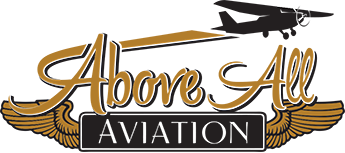instrument Pilot
For those pursuing a career in aviation or seeking increased safety, the Instrument Rating is a significant achievement. Flying IFR (Instrument Flight Rules) requires precision, skill, and focus. With several IFR-certified aircraft and an advanced simulator, Instrument Training at Above All is both realistic and efficient. Using our full-motion Redbird simulator during your training is a cost and time efficient way of practicing approaches and other maneuvers in simulated Instrument Meteorological Conditions (IMC).
Requirements
Summary Requirements for Instrument Pilot
At least 17 years of age
Private Pilot certificate
Third class medical certificate
FAA written test (passing grade is 70)
FAA practical (oral and flight) exam
Flight training as listed below:
To be eligible to pursue an Instrument Rating, the applicant must:
Candidates for the Instrument Rating must be knowledgeable in IFR-related items in the AIM, the U.S. ATC system and procedures, IFR navigation, the use of IFR charts, aviation weather, requirements for operating under IFR conditions, recognition of critical weather, Aeronautical Decision Making (ADM) and Crew Resource Management (CRM).
Accumulate flight experience per FAR 61.65:
The candidate must have at least 50 hours of cross-country flight time as pilot in command, which can include solo cross-country time as a student pilot. Each cross-country must have a landing at an airport that is at least a straight-line distance of more than 50 nm from the original departure point.
The candidate must make at least one dual cross-country flight that is performed under IFR and transits a distance of at least 250 nm along airways or ATC-directed routing and includes an instrument approach at each airport so that a total of three different kinds of instrument approaches are performed.
The candidate also needs a total of 40 hours of actual or simulated instrument time, including a minimum of 15 hours of instrument flight training from a Flight Instructor certified to teach the instrument rating (CFII).
Up to 20 hours of the instrument training may be accomplished in an approved flight simulator or flight training device if the training was provided by an authorized instructor.
In the 2 calendar months prior to the practical test, the candidate needs to log 3 hours of instrument training in an airplane that is appropriate to the instrument-airplane rating from a CFII in preparation for the test. The candidate must also receive and log training, as well as obtain a logbook endorsement from their CFII on the following areas of operation: preflight preparation, preflight procedures, air traffic control clearances and procedures, flight by reference to instruments, navigation systems, instrument approach procedures, emergency operations, and postflight procedures. Also, he/she must successfully complete the instrument rating practical test (an oral and flight test), as specified in Airman Certification Standards (ACS) for the instrument rating, which will be conducted by an FAA designated examiner.

